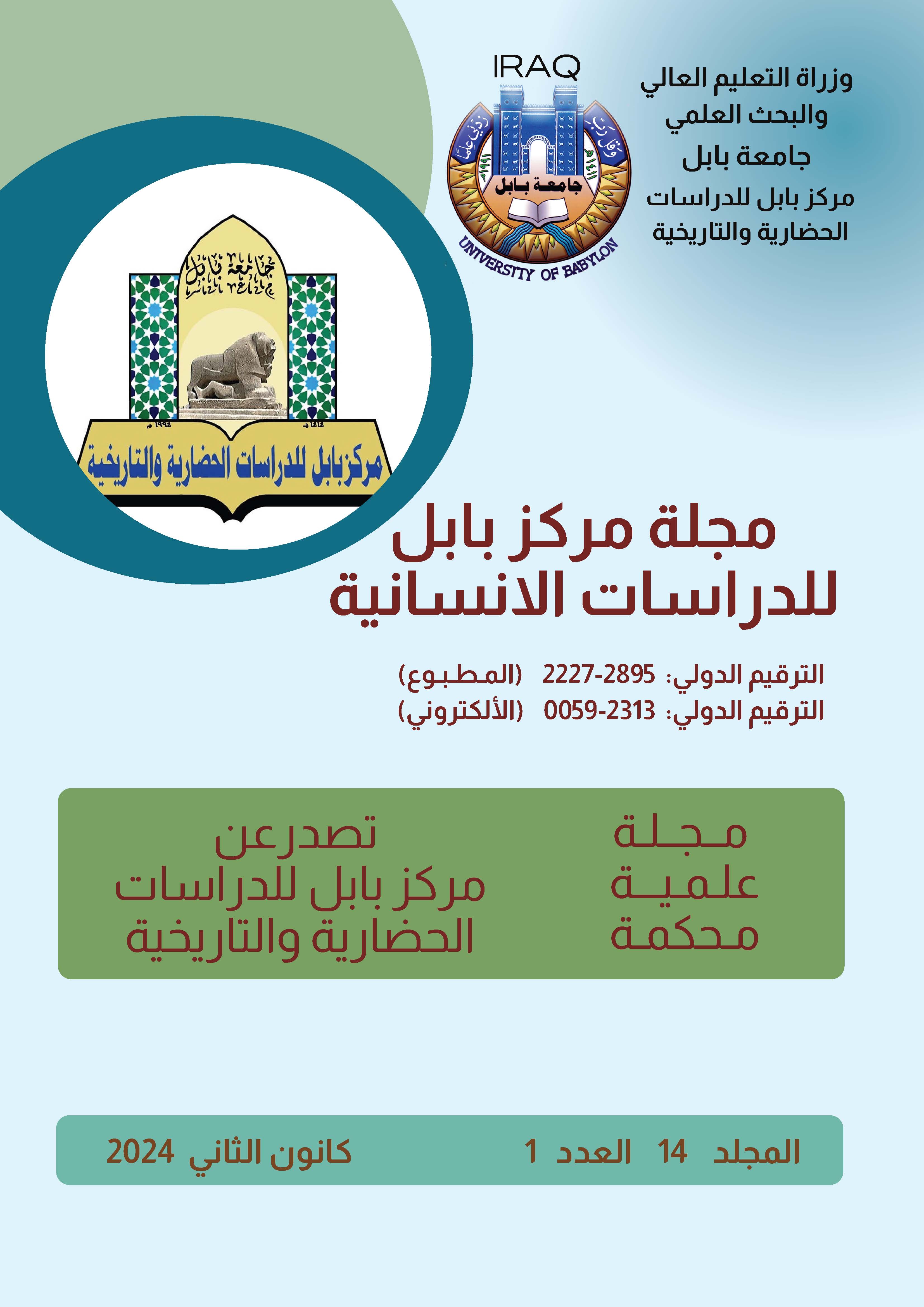اثر التعلم المقلوب على تطوير التعلم الذاتي فى مادة الرياضيات لدى متعلمي الصف السادس الإعدادي
الكلمات المفتاحية:
الفصول المقلوبة ، تعلم ذاتي, التعلم المنعكسالملخص
تهدف هذه الدراسة إلى تدريس الرياضيات من خلال استراتيجيات التعلم المعكوس، وتحسين أداء طلاب المجموعة التجريبية في المهارات الأساسية باستخدام التقنيات الحديثة، وتحديد أثر التعلم المعكوس على المهارات الأساسية من خلال مقاطع الفيديو أو الملفات الصوتية، ومقارنتها بالتدريس. تم استخدام الأساليب التجريبية لتحقيق أهداف البحث، وتم التحقق من هذه الدراسة من خلال النتائج الموجودة في الفصل الرابع. وتوصلت الدراسة إلى أن هناك تعاونًا وتفاعلًا وتصورًا وتوحيدًا للمعارف والمهارات أفضل لدى الطلاب الذين يتعلمون وفق أسلوب التعلم المقلوب مقارنة بمن يتعلمون باستعمال الطرق التقليدية، ومن ثم يشرف على أنشطتهم ويقدم التوجيه المناسب. إن تدريس مادة الرياضيات باستخدام استراتيجية التعلم المقلوب زاد من تحصيل طلاب المجموعة التجريبية. تعاون وتفاعل الطلاب الذين درسوا على وفق استراتيجية التعلم المقلوب أفضل من تفاعل الطلاب الذين درسوا بالطريقة الاعتيادية.
إجراء دراسات تجريبية حول هذه الاستراتيجية ومحاولة المقارنة بين أثر استخدام استراتيجية التعلم المقلوب، وبعض الاستراتيجيات الأخرى على التعلم الذاتي والتفكير في مادة الرياضيات. إجراء دراسة للتعرف على أثر استخدام استراتيجية التعلم المقلوب على الطلاب الموهوبين والطلاب المتأخرين دراسياً، ومدى ملائمتها لهم. تطبيق استراتيجية التعلم المقلوب في بعض الموضوعات الدراسية، وفي جميع مراحل التعليم العام، وبدعم وأشراف فريق مختص من المشرفين الاختصاصيين.اعتماد استراتيجية التعلم المقلوب لموافقتها مهارات التعلم المطلوبة في الألفية الثانية ولأنها قادرة على تفعيل التعلم المبني على أبحاث الدماغ والأنماط التعليمية الحديثة والذكاءات وتسريع عملية التعلم.







